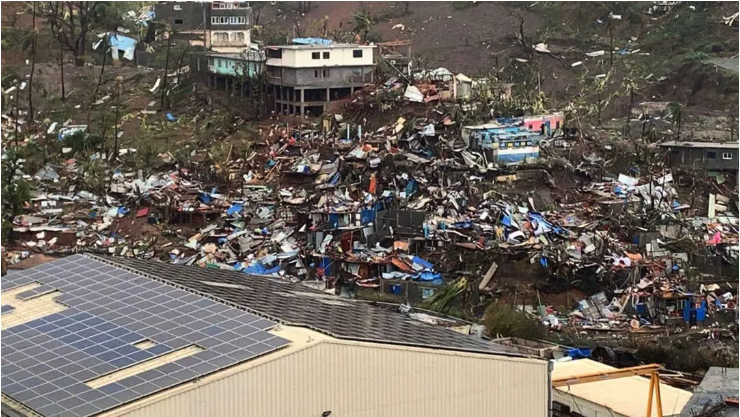EU Scientists: 2023 to Be Hottest Year in 125K Years
Following October's record temperatures, the EU's Copernicus Climate Change Service (C3S) said Wednesday that 2023 is 'virtually certain' to be the hottest year in 125K years, with last month setting a new October record for the same period by 0.4°C (32.72°F)....

Facts
- Following October's record temperatures, the EU's Copernicus Climate Change Service (C3S) said Wednesday that 2023 is 'virtually certain' to be the hottest year in 125K years, with last month setting a new October record for the same period by 0.4°C (32.72°F).1
- The climate service said the number of days breaking the significant 1.5°C (34.7°F) threshold has also reached a new high, with July likely having been the hottest month in 120K years and September breaking the previous record by 0.5°C (32.9°F).2
- What makes this year likely to be the hottest in 125K years is that October was 1.7°C (35.06°F) warmer than the estimated average for the pre-industrial era October. The previous record was broken in 2016, which, like this year, was another El Niño year, which is a weather pattern that warms the surface waters in the eastern Pacific Ocean, causing heat to rise.3
- Given that the C3S's data records go back to 1940, the agency uses readings from sources such as ice cores, tree rings, and coral deposits to collect longer-term data.4
- University of Pennsylvania climate scientist Michael Mann warns that El Niño years add 'to the steady ramp of human-caused warming.' This year, the record warming has been attributed to floods in Libya, heatwaves in South America, and Canada's worst wildfire season on file.1
Sources: 1Reuters, 2BBC News, 3DW and 4The Straits Times.
Narratives
- Narrative A, as provided by Time. The world has sadly come to a point where watching record heat is becoming normal and is expected to continue each year. What leaders should be focused on now are the people and places this fossil fuel-caused global warming is destroying. Beyond our duty to save people's lives, it will actually be cheaper, in the long run, to stop burning fossil fuels than to continue, as the latter only raises the cost of life and life-saving.
- Narrative B, as provided by FOX News. Most people recognize that the climate is changing — one of the differences of opinions is over whether fossil fuels have created more harm than good in the grand scheme of things. Burning fossil fuels has helped develop the technology that has actually lessened weather-related deaths by a huge margin. As the Earth warms, we will need that technology to build the infrastructure necessary to remain safer from the elements than we were before the industrial boom.






